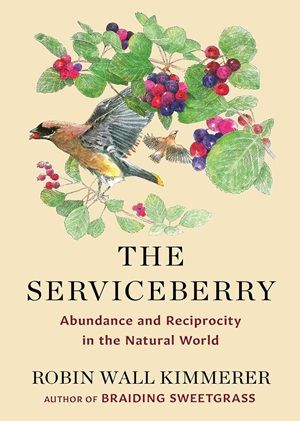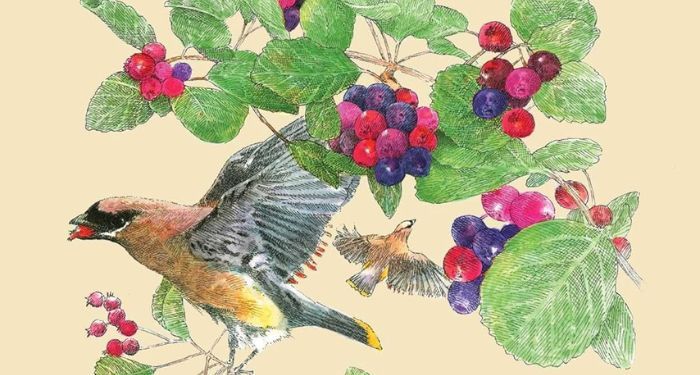
The Serviceberry: Abundance and Reciprocity in the Natural World by Robin Wall Kimmerer and illustrated by John Burgoyne
The natural world depends on reciprocity, which Kimmerer describes as “hundreds of gift exchanges” in the case of a pail of Juneberries that she is picking at the beginning of this book. The maple trees give their leaves to the ground where microbes give nutrients to allow for the berry seeds to take root. A bird may have given that seed by dropping it in that place, the sun gives light and warmth, the rain give much-needed hydration, and many, many other gifts are given to result in the pail of berries the author has harvested.
Rooted in this idea, the author expands to the ways that many Indigenous Peoples have a “culture of gratitude” and asks readers to reflect on the idea of enough. For example, there is enough food on the planet to feed everyone so the problem isn’t abundance, it’s that some have more than they need. She writes about the importance of the gift economy, with multiple examples, such as neighbors setting up a makeshift farmstand where they share things like extra zucchini. If you have ever successfully grown zucchini, then you understand that it can very easily go from, “Yum, I love zucchini!” to “Oh my god, this is more zucchini than any family can eat on our own! Please, for the love of all that is holy, take some!”
The author explores the ways in which we can expand this gift economy in various spaces beyond rural, such as the more urban and online spaces that many of us inhabit. She writes about how we can move from overconsumption to recognizing abundance and opportunities for gifting. She also gives a lesson on the Honorable Harvest, which I think should be taught to everyone.
This book has immediately been added to my list of favorites and it may be one I reread each season. It is an incredibly important read and, of course, a wonderful book to gift.

